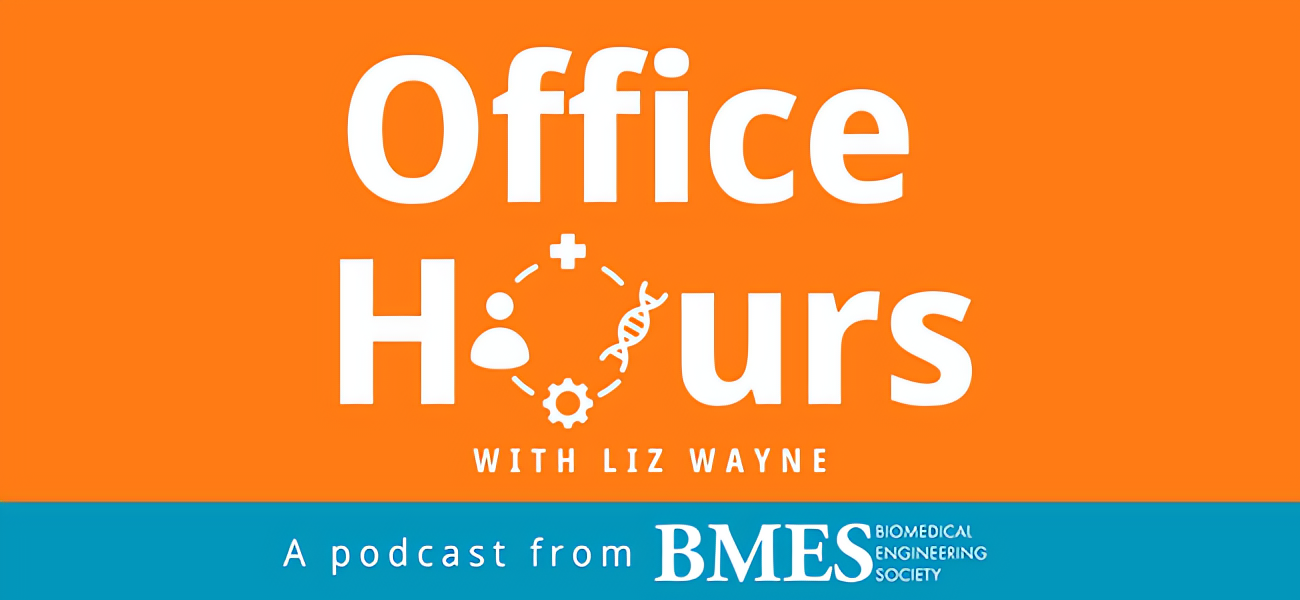2025 Pritzker Award
Pritzker Distinguished Lecture: Mice, or Microfluidics? Humanizing Biomedical Research with “NAMs”
BMES serves as the lead society and professional home for biomedical engineers and bioengineers. BMES membership has grown to over 6,700 members, with more than 110+ BMES Student Chapters, three Special Interest Groups (SIGs), and four professional journals.
Welcome to the BMES Hub, a cutting-edge collaborative platform created to connect members, foster innovation, and facilitate conversations within the biomedical engineering community.
Discover all of the ways that you can boost your presence and ROI at the 2024 BMES Annual Meeting. Browse a range of on-site and digital promotional opportunities designed to suit any goal or budget that will provide maximum impact.
Pritzker Distinguished Lecture: Mice, or Microfluidics? Humanizing Biomedical Research with “NAMs”
The 2025 Robert A. Pritzker Distinguished Lecture at the BMES Annual Meeting will be delivered by Dr. Linda Griffith of MIT, a trailblazer in biomedical engineering and women’s health research. Her lecture, titled “Mice, or Microfluidics? Humanizing Biomedical Research with ‘NAMs’,” will explore how the field can move beyond traditional animal models toward more representative, human-focused systems.
Research and development in chronic inflammatory diseases—conditions that disproportionately affect women—remain constrained by reliance on poorly representative animal models. The gaps between animal and human biology, particularly in immunology, hinder progress in identifying mechanisms and validating therapies.
Dr. Griffith’s talk will spotlight two powerful technological developments now converging to address these gaps:
Systems biology and immunology analysis of patients, providing deep insights into human immune responses.
Microphysiological systems (“organs on chips”), often called living patient avatars, which replicate human tissue function with unprecedented precision.
These innovations are collectively recognized by the NIH as “Novel Approach Methods” (NAMs). The agency has launched the Complement-ARIE (Complement Animal Research In Experimentation) program to accelerate the development and deployment of these approaches.
Gynecology offers a compelling proving ground for NAMs. In her lecture, Dr. Griffith will illustrate how conditions such as endometriosis—where steroid hormone regulation is central to physiology—provide critical case studies for testing and validating new technologies. These efforts have the potential to set benchmarks that ripple across all areas of biomedical research.
The Pritzker Lecture will challenge attendees to rethink research frameworks, champion new standards of evidence, and embrace technologies that more faithfully represent human biology.
Don’t miss this plenary session at the BMES 2025 Annual Meeting in San Diego, October 9, from 11:00AM - 12:15PM.

Pritzker Distinguished Lecture: Mice, or Microfluidics? Humanizing Biomedical Research with “NAMs”

Due to attendee request, the submission deadlines for Late Breaking Abstracts and Undergraduate Abstracts has been extended to ensure that you have...

The Biomedical Engineering Society (BMES) today announces the launch of its brand-new podcast, Office Hours. Join Dr. Liz Wayne, Assistant Professor...

Greetings everyone!
.jpg)
This is the fifth in a series of articles highlighting some of the technologies, processes and keynote plenary sessions presented at the 2024 Annual...

This is the fourth in a series of articles highlighting some of the technologies, processes and keynote plenary sessions presented at the 2024...